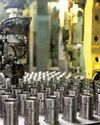Why India needs an integrated approach to up its investment numbers in Africa and why it must match the political outreach with a robust economic model for the continent.

Africa had six of the world’s 10 fastest-growing economies in 2018, according to a World Bank report. Take a look at these numbers. The report pegs East African country Ethiopia’s growth at 8.2 percent, West African nation Ghana’s at continent leading 8.3 percent followed by Cote d’Ivoire’s 7.2 percent, Djiboti’s 7 percent, Senegal’s 6.9 percent, and Tanzania’s 6.8 percent. Another Central African country Rwanda, which overcame along political and ethnic crisis, grew at 8 percent during 2001-2015.
A report by the United Nations Conference on Trade and Development (Unctad) titled ‘World Investment Report for 2018’, Indian FDI in Africa in 2016-17 at $14 billion was even lower than it was in 2011-12 at $16 billion. In fact, with the exception of the 2015 figures, which jumped due to a single investment of $2.6 billion by ONGC Videsh (OVL) for a stake in the Rovuma gas field of Mozambique in 2014, Indian investment in Africa has been steadily decreasing year on year since 2014. In the larger scheme of things, where the global economy and investment footprints come into play, the decreasing investment figures are a cause of concern.
One of the issues has been that the current climate of investment in African countries itself — the country has seen FDI flows drop 21 percent in 2016-17 according to Unctad. Still, India is the only big investor in Africa to have reduced its investment. China, for example, increased investment from 2011-12, when its investment levels were identical to India’s at $16 billion, to a massive $40 billion in 2016-17.
This story is from the {{IssueName}} edition of {{MagazineName}}.
Start your 7-day Magzter GOLD free trial to access thousands of curated premium stories, and 9,000+ magazines and newspapers.
Already a subscriber ? Sign In
This story is from the {{IssueName}} edition of {{MagazineName}}.
Start your 7-day Magzter GOLD free trial to access thousands of curated premium stories, and 9,000+ magazines and newspapers.
Already a subscriber? Sign In

MEMORIES & IMPRESSIONS
Ratan Tata was an exceptional human being. He was a visionary leader, esteemed industrialist, and a humanitarian, who left an indelible mark on India and the world.

The Robotaxi Market
The robotaxi market is shaping up to be a high-stakes battleground as tech giants and automakers race to transform urban mobility.

And the Nobel Prize Goes to AI
The recent Nobel Prize T awards to AI pioneers affiliated with Google have sparked a broader conversation about Big Tech's influence on research and the limitations of traditional prize categories.

Ola Electrified
Once considered a trailblazer in India’s electric vehicle (EV) ecosystem, Bhavish Aggarwal’s Ola Electric now faces a major accountability crisis.

Sharp Slide in Industrial Output on Eve of Deepavali
India’s index of industrial production (IIP) saw a sharp reversal in August, contracting by 0.1 per cent, in stark contrast to the 4.7 per cent growth in July, mostly because of significant contractions in mining and electricity generation.

Heralding the Solar Era with Sustainable Electrification
RAJEEV KASHYAP on the economics of solar power, the hurdles in scaling it, and much more

A WELL-GREASED MACHINE
The OmniBook X14 laptop runs on first-generation Snapdragon X Elite, which bets big on Al-enabled productivity and battery life, but falls short when it comes to overall experience, says Deep Majumdar

DO NOT LETA HEALTH CRISIS RUIN YOUR FINANCIAL HEALTH
For a family of four living in a metro, it is recommended to opt for a family floater health insurance plan with a sum insured of at least Rs 15-20 lakh

Disruption Ahead: Beyond Organisation Charts and Structures
ALBERT EINSTEIN FAMOUSLY said, “We cannot solve our problems with the same thinking we used when we created them.

Dr. Rahul Shivajirao Kadam: A Visionary Leader Blending Sustainability, Innovation, And Social Empowerment
We are on the stage of global warming, and these technologies not only help prevent further damage but also leave behind a better environment for future generations.